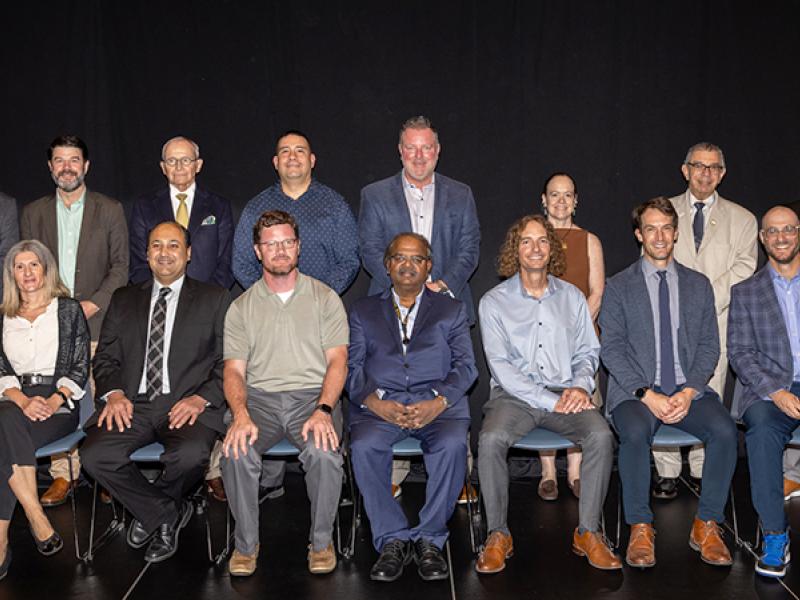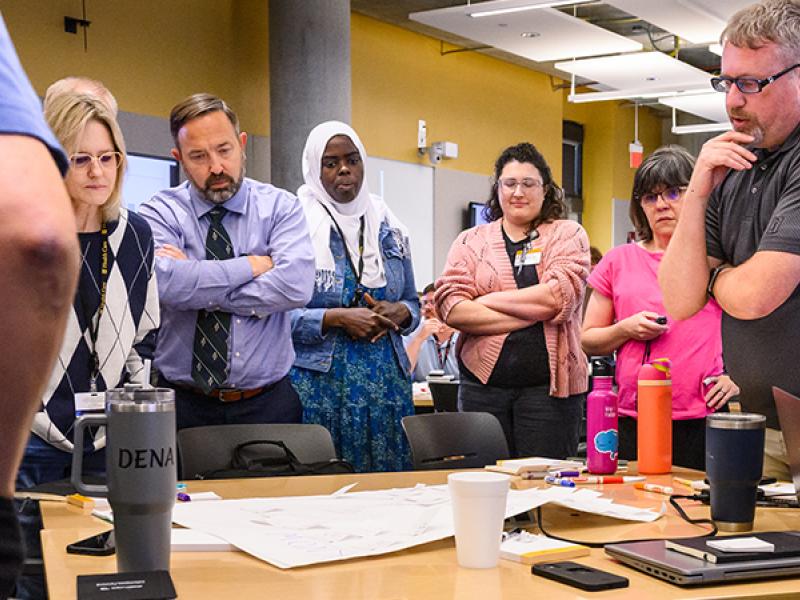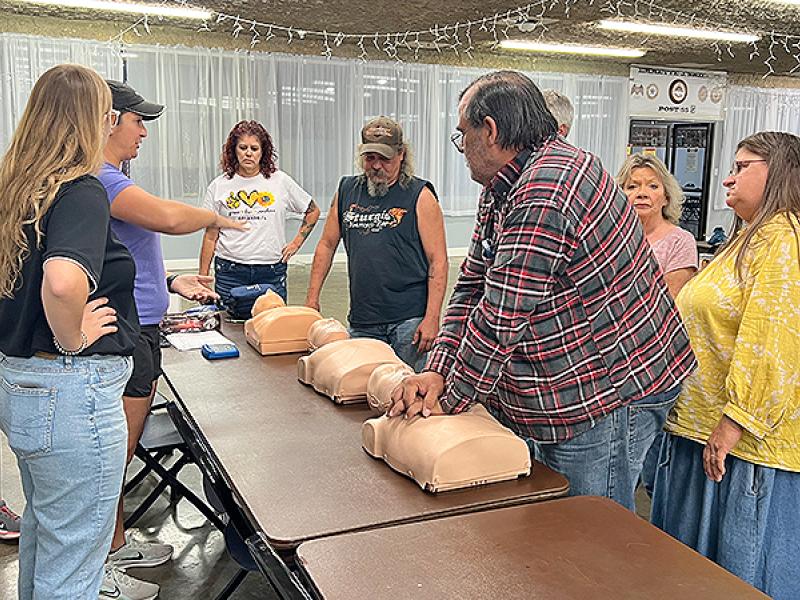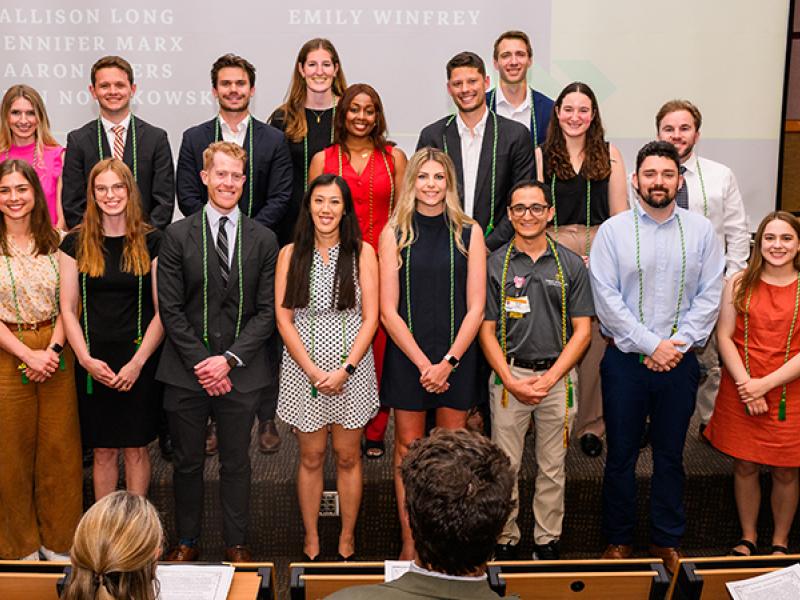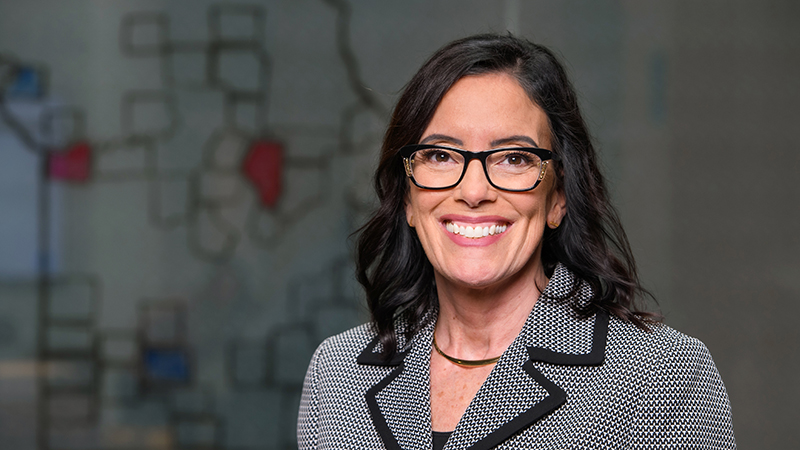
Kathleen Quinn, PhD, has devoted her career to establishing relationships and learning the realities others face.
After graduating from the University of Missouri, Quinn joined the staff of the Community Action Agency in Columbia, where she mentored disadvantaged single moms on everything from continuing their education to finding reliable child care.
“All they wanted to do was to be good role models for their kids,” Quinn said. “I grew up in Columbia and went to high school with some of these women. If they’re not in your circle of friends and you don’t go to their neighborhoods or into their houses or know their lives, you’re unaware. I learned so much from the women I worked with about persistence and resilience.”
Quinn learned more about health disparities in the state while working as a public health educator for the Missouri Department of Health and Senior Services.
“When I came to work at MU, I realized all the issues I’d been working to address in my other roles were even bigger than I realized and affected rural populations, too,” Quinn said.
With more than 2 million rural residents, Missouri is disproportionately affected by chronic disease, opioid overdose, infant and child mortality, and lack of access to care. Much of rural Missouri has been designated by the federal government as a primary care Health Professional Shortage Area.
Quinn has led the University of Missouri School of Medicine’s rural health programs for almost 20 years. As a leader of the Rural Scholars Program, Quinn has established statewide partnerships with organizations, communities and hospital systems to address the shortage of rural doctors by providing interested students with mentoring, clinical experience and educational opportunities in rural Missouri.
Through these relationships with partners across the state, she’s developed a deep understanding of the challenges many Missourians face in accessing health care. And, importantly, she has helped medical students and residents gain exposure so they, too, can establish relationships, learn the realities of rural communities and then return to practice in Missouri prepared to address those challenges.
“The students go to these communities, spend time there, learn from the community members, come back and say, ‘I can make a contribution and care for my neighbors, my family and my community,’ ” Quinn said. “It’s so rewarding to have the outcomes we do with many of our students going back to those communities and then teaching the students who are behind them in the pipeline.”
An expanding role built to address rural Missourians’ needs
In 2019, Quinn received nearly $4 million from the Health Resources and Services Administration to increase the number of doctors in Missouri and address physician shortages in rural parts of the state. The grant is the largest award for rural medicine in the university’s history.
Now, Quinn is expanding her role beyond rural medicine and the medical school. As the newly named senior program director for community health engagement and outreach for the University of Missouri, she is using her relationships across the state to help solve rural health challenges, a key aim of the NextGen Precision Health Institute.
This joint position between the MU School of Medicine and the University of Missouri Office of Extension and Engagement is a collaborative role that demonstrates MU’s integrated approach to community health as well as its commitment as a land-grant institution to improve the health and well-being of all Missourians.
“In my role at the School of Medicine, I have helped to make a contribution in the problems facing rural health care,” Quinn said. “Now, with Extension, the Missouri Telehealth Network and the Center for Health Policy together in one coordinated effort, this is the best of all worlds. People are coming together, and I get chills.”
Quinn said her role is not to go to communities and tell them what to do.
“We’re not going to do this to you,” Quinn said. “We want to study and identify what your needs are and help you meet those needs. NextGen is not just a building in Columbia. This is research, this is partnerships, this is collaboration between the university and communities working together to solve real challenges rural Missourians face.”
Quinn will provide leadership for the community health engagement and outreach efforts across MU and Missouri to help close the health care gap with high-touch community health approaches. She will focus on forming links between rural programs and campus-based resources, such as the Center for Applied Research and Engagement Systems’ All Things Missouri data center and the Center for Health Policy’s health care workforce analysis project. The goal is to bring personalized care, information and prevention to rural Missourians like never before.
“Dr. Quinn is ideally positioned for this new role,” said Marshall Stewart, EdD, UM System chief engagement officer and vice chancellor for extension and engagement at MU. “She is deeply committed to finding ways to improve health outcomes. Under the umbrella of NextGen, Dr. Quinn’s team and our university as a whole will tackle very real challenges to Missourians’ health, such as diabetes, Alzheimer’s, autism and cancer. We’re going to be able to touch every part of the state with innovations and knowledge that will save and improve lives in rural and urban communities alike.”
“Dr. Quinn has an already impressive record of addressing health workforce needs in Missouri,” said Steven Zweig, MD, dean at the MU School of Medicine. “We are confident that Dr. Quinn’s dedication and experience will help us develop a comprehensive approach to meeting the community health needs of our state.”
Quinn said she’s reminded often why she does the work she does.
“You go to the waiting room for a doctor’s appointment and you see all these people — who knows how far they’ve driven or where they’re staying if their appointment doesn’t finish,” Quinn said. “This is why I’m doing my job, pushing for more access, more education, more care at the local level. Health is woven into every facet of life for the people we serve. We have a role to play in our own health and the health of our communities. The combination of high-tech NextGen research, technology and innovation with high-touch MU Extension people and programming across our state presents an opportunity to extend a roadmap for lifelong health and well-being for ourselves, our families and our communities.”
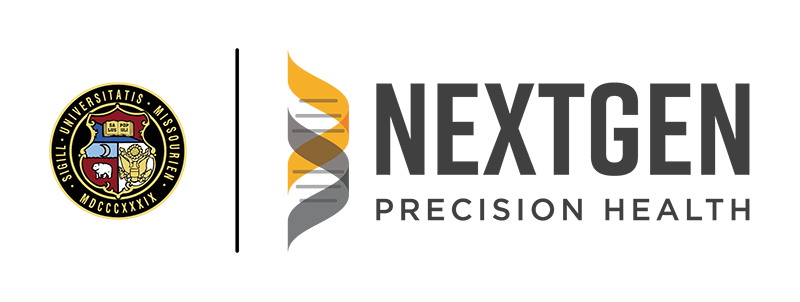
Highlighting the promise of personalized health care and the impact of large-scale interdisciplinary collaboration, the NextGen Precision Health initiative is bringing together innovators from across the University of Missouri and the UM System’s three other research universities in pursuit of life-changing precision health advancements. It’s a collaborative effort to leverage the research strengths of Mizzou toward a better future for the health of Missourians and beyond. The Roy Blunt NextGen Precision Health building at MU anchors the overall initiative and expands collaboration between researchers, clinicians and industry partners in the state-of-the-art research facility.


